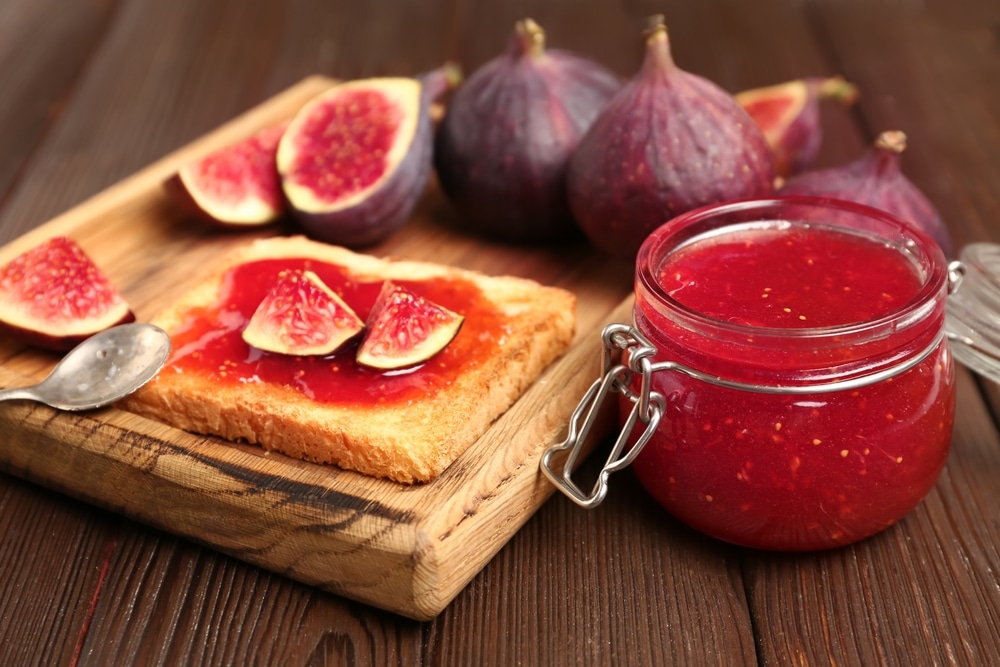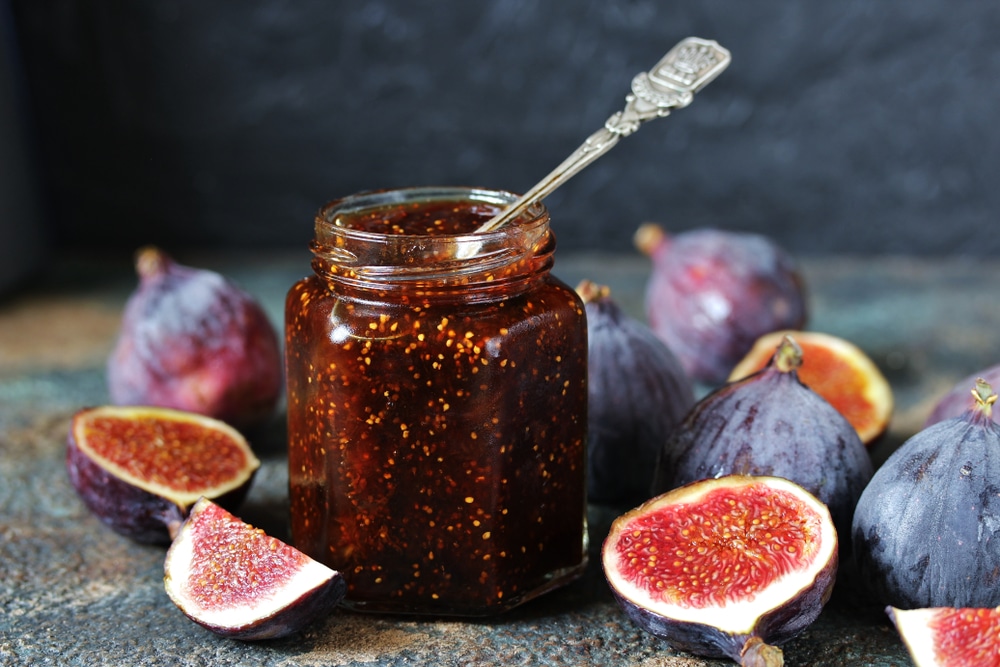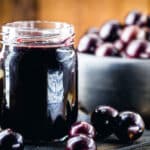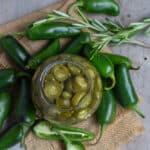August is the month that fig lovers most eagerly await as they finally have fresh figs. Fig season feels like nature’s candy arrives, promising a delightful burst of flavor with every bite. But here is the thing: fig lovers feel sad when the season ends, but they can preserve figs to enjoy their deliciousness year-round. By drying, canning, or making fig preserves, they can capture the sweet essence of figs and enjoy the taste of nature’s candy even when fresh figs are out of season. So here we are giving you the best recipe to preserve your delicious fig so you can enjoy it all year round; let’s come and embrace the fig-tasty goodness and enjoy the unique taste that only figs can offer, making every moment a little sweeter. Below is a detailed fig preserves recipe that uses fresh, ripe figs and a hint of lemon for added zest.
Ingredients
- 2 1/2 cups fresh figs, stemmed and quartered
- 1/2 cup water
- 1/2 cup lemon juice
- 2 cups granulated sugar
Instructions

Prepare the Figs
Start by washing and trimming fresh figs. For the best texture and flavor, they must be at room temperature. Stem the figs and cut them into quarters.
Cooking the Preserves
In a large saucepan, combine the figs with water and lemon juice. Cook over medium heat until the mixture comes to a boil. Reduce the heat and let it simmer for about 15 minutes or until the figs are soft and tender.
Add Sugar
Next, you have to stir in granulated sugar gradually to ensure it dissolves completely. Let the mixture simmer gently, stirring occasionally, until it thickens to a jam-like consistency. This typically takes about 15-20 minutes.
Sterilize Jars
While the fig mixture is cooking, prepare your jars for canning. Wash them in hot, soapy water and rinse well. Place the jars in a large pot of boiling water to sterilize, along with their lids and rings. Keep them in the hot water bath until ready to use.
Fill and Seal
Once the fig preserve mixture has thickened, carefully ladle it into the hot sterilized jars, leaving about 1/4 inch of headspace. Wipe the jar rims clean with a dry cloth to ensure a proper seal. Place the lids on the jars and screw on the rings finger-tight.
Process the Jars
Submerge the filled jars in a boiling water bath, covering them with at least 1 inch of water. The process lasts 10 minutes to ensure proper sealing and preservation.
Cool and Store
Carefully remove the jars from the water bath using jar lifters and place them on a towel-lined counter. Allow the jars to cool completely at room temperature. You may hear the satisfying “pop” of the lid sealing as they cool.
Enjoy Your Fig Preserves
Once cooled, check that all lids are adequately sealed (they should not flex when pressed). Label the jars with the date and store them in a cool, dark place. Properly sealed jars can be stored for up to a year.
You can also enjoy the fruit and vegetable canning recipes by following these easy and detailed articles and enjoy your favorites all year round
Usage Tips
Here are the tips on how you can enjoy your fig preserve.
- Spread fig preserves on toast or biscuits for a delicious breakfast treat.
- Pair with cheeses like brie or goat cheese for a savory appetizer.
- Use as a filling for pastries or swirl into yogurt for added sweetness.
Conclusion
This fig preserves recipe offers a taste of summer that can be enjoyed throughout the year. With just a few simple ingredients and easy steps, you can create a flavorful preserve that will enhance a variety of dishes, from breakfast to dessert. Experiment with different varieties of figs and enjoy the versatility of this homemade treat.




